
For those who like astronomy, surely you know the name of this Black Hole. A black hole that roams in space and is able to suck everything including light. Many scientists have tried to learn and uncover the mystery of the Black Hole itself. But the results are still uncertain and just a theory or hypothesis.
Of course you are curious and want to know more about the Black Hole. Here's the shocking facts about the Black Hole below:
1 | Black hole is not a hole.
In illustration, we often see funnel-shaped black holes, but actually this is not the case. The picture only illustrates the effect of gravity. In fact, black holes are round like planets.
2 | The Black Hole was once a star.
Black holes are formed from large-mass stars that die and collapse in their own gravity. Being very small, infinite scientists call it singularity.
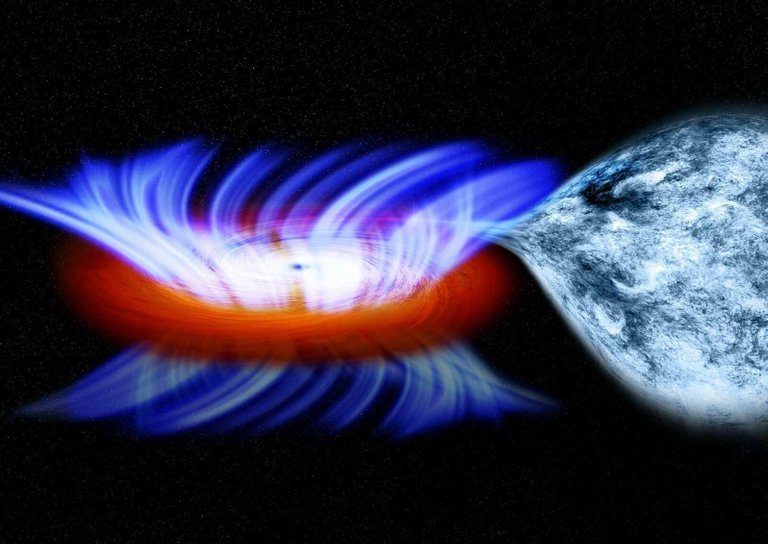
3 | Earth can become a Black Hole.
This can happen if the earth can be compressed in such a way as to the size of a pea. So it has a very large gravitational pull.
4 | Black Hole distorts space-time.
Because gravity is extraordinarily strong, space and time will be affected. This is commonly called time dilation in Einstein's theory of relativity, for example if superman goes into a black hole, observers who see from a distance will see superman slowing down as it approaches the event horizon. But Superman did not feel the slowdown, for him the time was still normal.
5 | Event Horizon.
The Event Horizon is a Black Hole suction radius. If there is something in this radius there will be no hope of even light. That's why the black hole looks dark because the light has entered the black hole and can't bounce into our eyes.
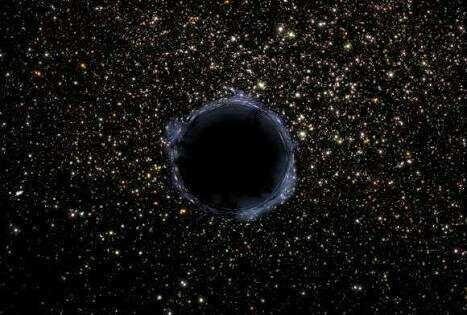
6 | The closest Black Hole is 2,800 light years away.
Based on Wikipedia data, the black hole close to our solar system is 2,800 light years or 26,490,045,323,226,240 Kilometers named V616 Monocerotis. It has a mass of about 11 times the mass of the sun and is located between two binary star systems.
7 | Black holes can grow infinitely large.
The black hole gets the strength of the star and all the material it sucks, the more it consumes the greater the mass and automatically the greater the gravity, so on and so on.

8 | The biggest black hole known in the Universe is J0100 + 2802.
His real name is SDSS J010013.02 + 280225.8, As published in space.com, this black hole has a mass of 12 billion times the sun and is 12.8 billion light years from the earth. The brightness reaches 429 trillion times the sun.
9 | There is a supermassive Black Hole in our Galaxy.
The galaxy that we live in today is the Milky Way apparently has a supermassive black hole in the middle. Located in the star Sagittarius A whose mass reaches 5 billion times that of the sun.
10 | Black holes can evaporate.
This theory was first proposed by professor Stephen Hawking. Black holes do not completely suck but also emit thermal radiation called Hawking Radiation. With this black hole can shrink and die due to losing its own mass.
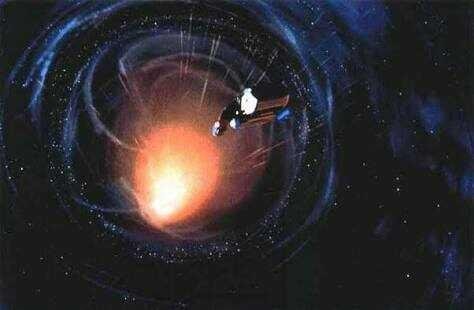
11 | Shortcut to Another Universe.
Even though the existence of another universe is not yet known, some scientists believe this idea. As is known Blackhole has the core of a small infinite automatic singularity which violates the laws of physics. The energy and density contained in it are likely to create a new universe that is completely different from our universe.
12 | Has an Accretion disk.
Acretion disk or accretion disk is a disk formed from a collection of matter orbiting a celestial body that has a large gravity. The accretion disc in the Black Hole emits very bright light and emits x-rays.
13 | The most obvious Black Hole picture is in the Interstellar movie.
Blackhole or gargantua images on interstellar are very confusing for ordinary people. The accretion plate looks bent or like having 2 plates that cross each other. But actually this is the effect of Gravitational Lensing, an effect of bending light by gravity. This causes the light from the accretion disk behind the blackhole to be seen by the observer.
14 | There are Millions of Black Holes in our Galaxy.
Astronomers estimate there are about 10 million to one billion black holes with a mass of about three times the sun, in the Milky Way.
15 | Your body will burn if it falls into the Black Hole.
According to earlier theories, if you enter a black hole, gravity will make your body stretch like a noodle to reach the singularity. But a 2012 study in Nature shows that quantum effects will cause the event horizon to act like a wall of fire, which directly burns someone to death.
16 | Black hole doesn't suck.
Maybe you think black holes suck like a vacuum cleaner. But actually blackhole is also like a normal sky object. Objects with small masses will fall on large gravitational objects.
17 | Black Hole was first mentioned by Simon Pierre LaPlace and John Michell.
In the eighteenth century John Mitchel and Simon Pierre LaPlace suspected that there might be quite a massive object capable of sucking light.
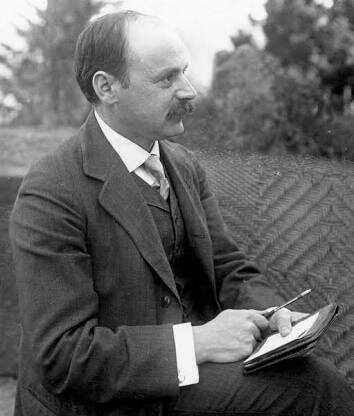
18 | The black hole model was defined by Karl Schwarzschild in 1916.
Using Einstein's General Theory of Relativity to define black holes. Karl determined the black hole's gravitational radius, then called the Schwarzchild radius.
19 | The Black Hole emits a Jet at the Pole.
This emission only occurs in supermassive Black Holes like those in the middle of our galaxy. This type of black hole is called a quasar, emits very bright light and fires jet particles from both poles at high speed close to the speed of light.
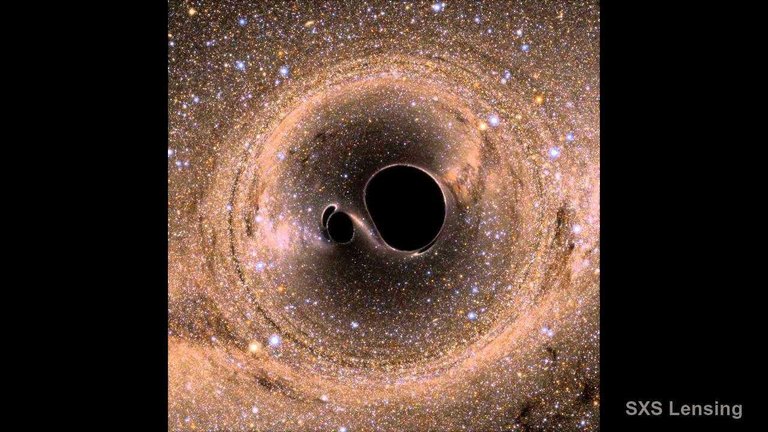
20 | Collision Black holes produce Gravity Waves.
On February 11, 2016, LIGO announced the first observation of gravitational waves. This wave is generated from a collision of two black holes in a binary system.